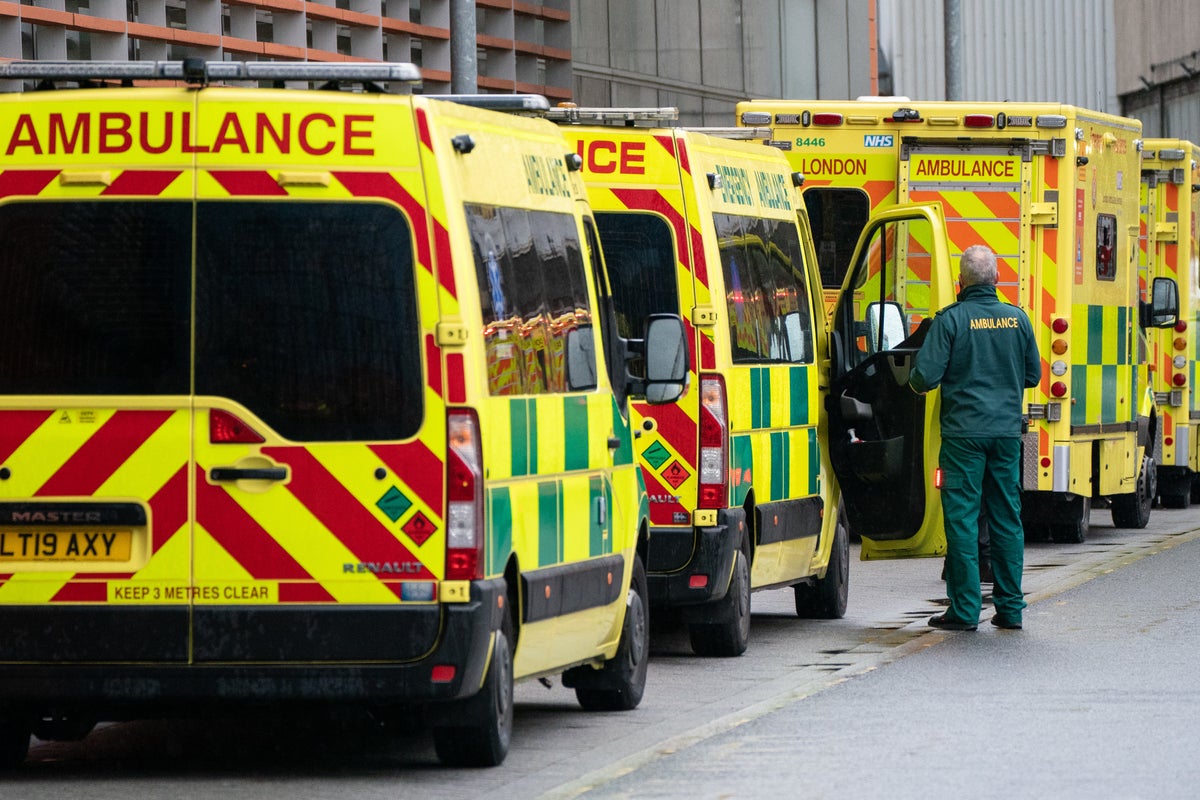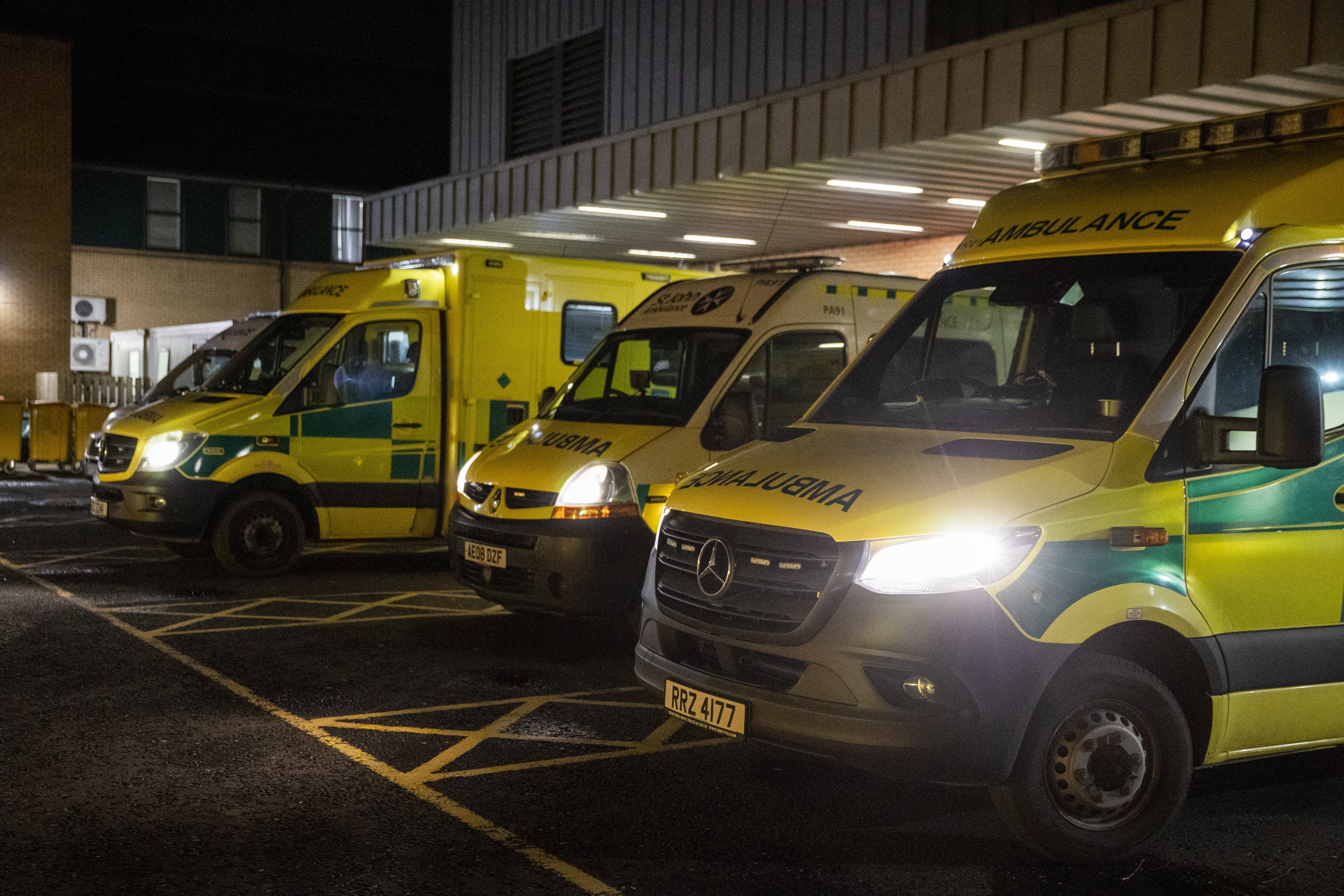
Harm to patients has become “normalised” as burned-out paramedics are working without breaks, the national care watchdog has warned.
Concerns over the pressures on staff at South East Coast Ambulance Service have been raised by the Care Quality Commission (CQC).
Senior staff told the CQC that patients were being adversely affected by ambulance delays but it was now being seen as “part of the culture”.
The CQC following a recent inspection found “many staff working beyond their hours and not always getting breaks on time”.
Have you been affected by this story? If so email rebecca.thomas@independent.co.uk
The trust’s data showed that 41 per cent of crews were able to take their breaks when allocated, while 10 per cent of staff finished their shifts late.
The news comes as a ballot was opened by unions for 15,000 ambulance staff to vote on strike action over pay.
The CQC found pressures on staff within the South East Coast Ambulance Service, such as long waits outside of the emergency department, had led to low morale and staff feeling they were not valued.
It added: “Staff described feeling frustrated and burnout and that senior leaders did not understand or respond to the challenges or concerns they raised.
“Some local senior managers described that harm to patients, caused by delays in reaching them, had become normalised as a culture.”
The Care Quality Commission also found people waiting in call queues following 999 calls. On one day 53 emergency calls were held and 123 urgent calls.
It said: “At times there were many outstanding category 3 [urgent] patients awaiting an ambulance or assessment by a paramedic practitioner.
“At busy times, these patients waited for extended lengths of time for crews and callbacks. Therefore, this group of patients were at risk of deterioration whilst they were waiting for a response.”

During one week the ambulance service had 10 per cent less staff than needed to meet demand, and according to the report was using private emergency response ambulances to help offset its workload and assist with staffing shortages.
Some ambulance crews reported difficulties in having leave requests approved, which the CQC said had a “negative” impact on the staff.
The regulator warned of long response times by the ambulance service but acknowledged the ambulances were also impacted by handover delays outside of the hospital.
According to data shared with the CQC, in the last year 26 patients were reported to have suffered “severe harm” due to delays in ambulances.
However, it said these incidents related to “potential harm” caused or “not prevented” by the service.
Recent data from the Association of Ambulance Chief Executives estimated there were likely to have been more than 4,000 patients who suffered “severe harm” due to ambulance handover delays.
Deanna Westwood, CQC’s network director, said: “During our inspection of South East Coast Ambulance NHS Foundation Trust, our inspectors found that staff on the front line were doing their utmost to provide safe and effective care to people across Kent, Surrey and Sussex.
“However, additional pressures on the service, which included an increase in staff sickness and increased delays in handovers from partner organisations, meant that the quality of care we saw being delivered had declined.”
Last week the regulator warned in its State of Care report that ambulance handover delays were a symptom of the “gridlocked” health and care system.
Siobhan Melia, the interim chief executive for South East Coast Ambulance Trust, said: “I am really pleased that the excellent care provided by our staff has once again been recognised and rated as ‘Good’ by the CQC, despite the huge pressures they face every day.
“I am very proud of the high-quality care and compassion provided by our staff. We have already taken concerns around our culture and leadership extremely seriously and we are committed to making further improvements to ensure we improve our response to patients and the working lives of our staff.”







